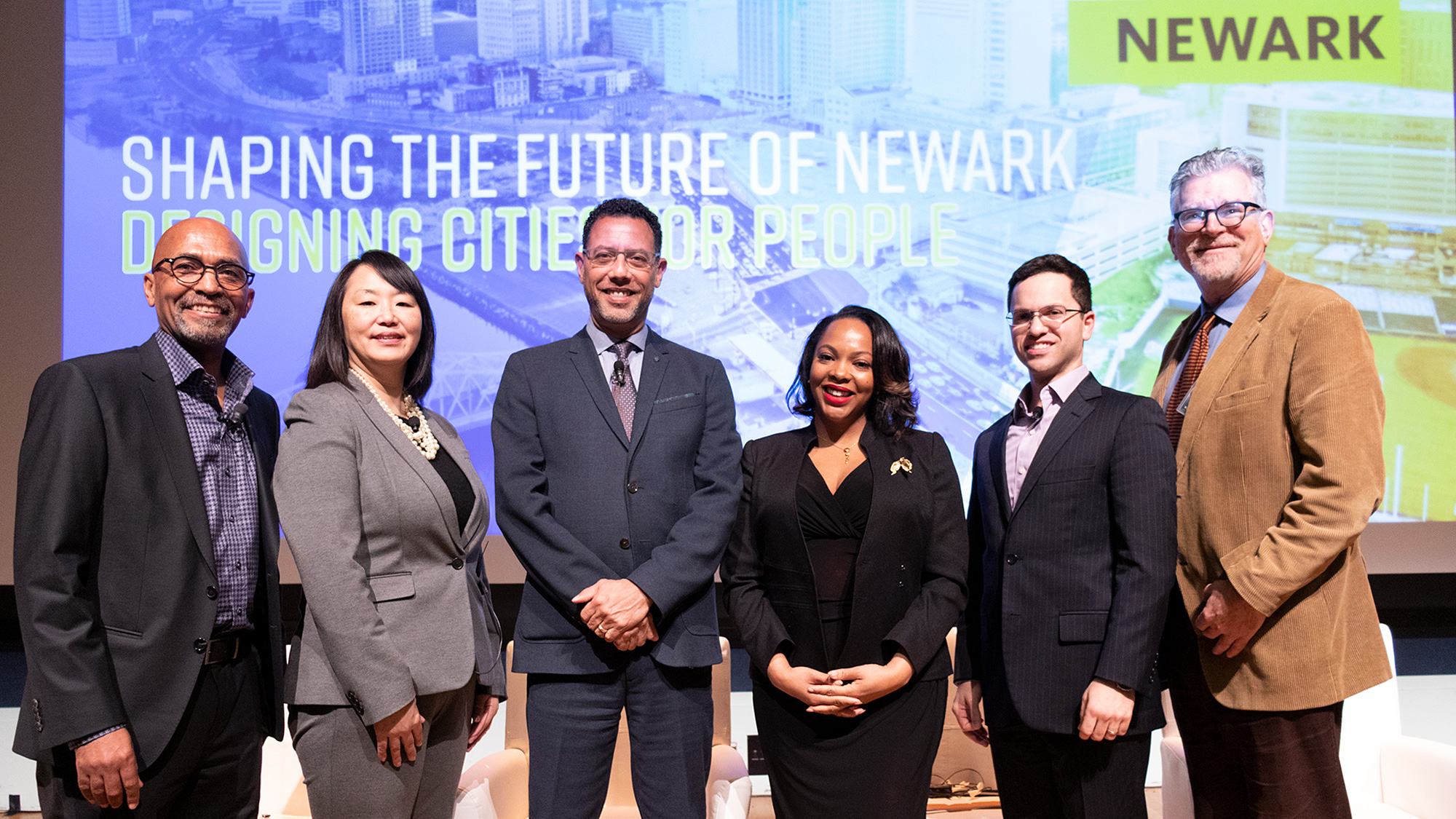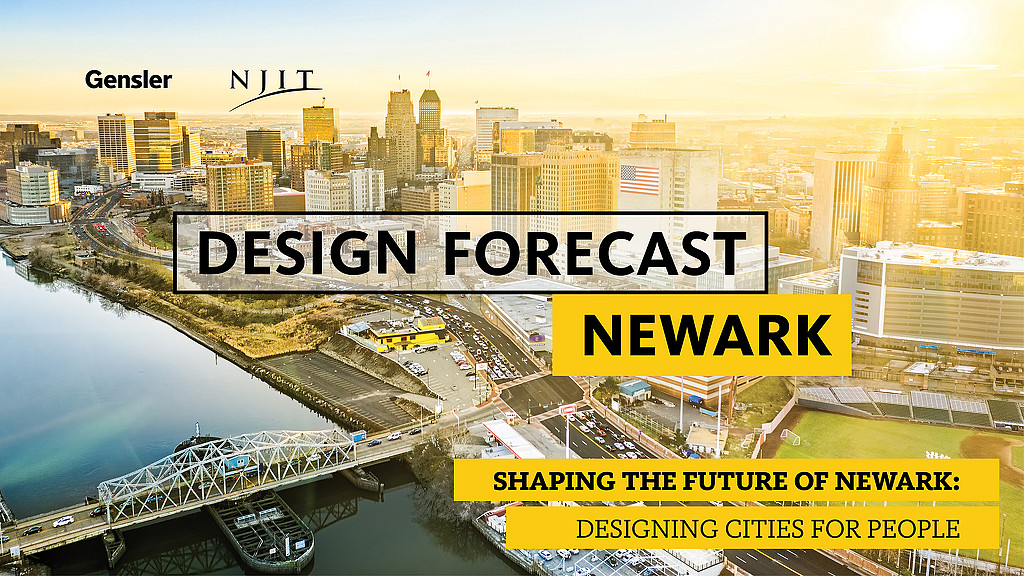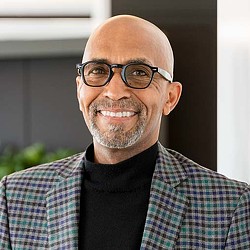Design Forecast Newark: Designing Cities for People
By Roger Smith
Editor’s note: This post is part of Gensler’s Design Forecast Local, a series of hyper local conversations with our clients about the topics that matter most in our cities.
The City of Newark, New Jersey, is on the rise, with policy and economic strategies coming together to create new opportunities. On Dec. 12, 2019, Gensler’s New Jersey office hosted "Shaping the Future of Newark: Designing Cities for People," a conversation at the Newark Museum of Art exploring how innovative policy and people-centered design strategies can improve the human experience and set a foundation for a vibrant, inclusive, and socially equitable future.
The program began with a presentation of the important role that cities will play in our future and how future strategies for Mobility, Connected Cities, Climate Change, and Housing can contribute to equitable growth. Today 4.2 billion people — just over 50% of the world’s population — live in cities. By 2050, more than 70% of the world’s population will live in cities. Because of their energy and diversity , cities are centers of innovation, culture, and economic vitality. In fact, over 80% of global GDP is generated from our cities.
Later, Darius Sollohub, associate professor, New Jersey Institute of Technology, moderated the discussion, which convened a panel of public officials, academics, and planners in a dialogue on topics ranging from social equity, to new modes of mobility, and the importance of placemaking in economic development.
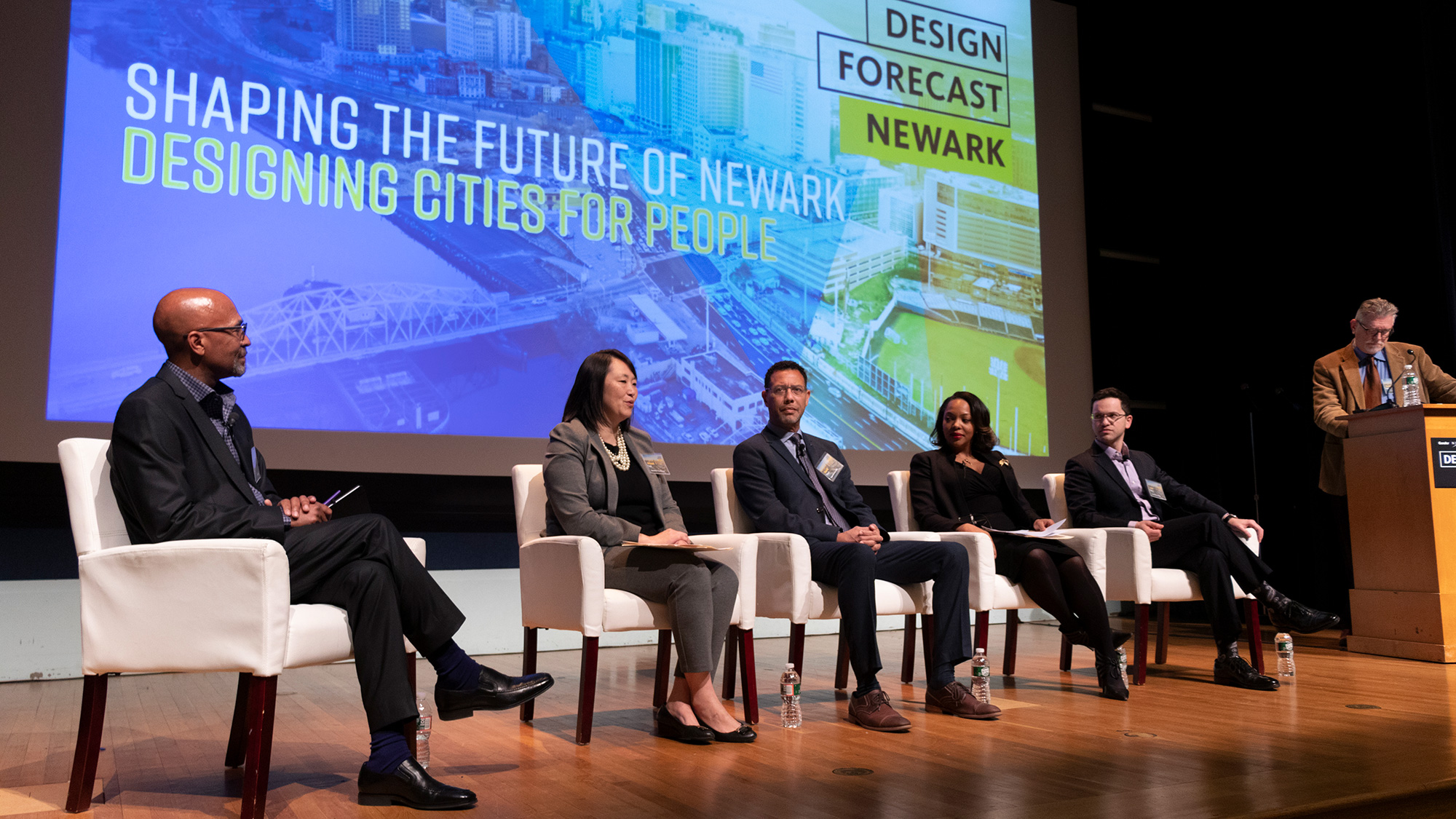
We must practice equity in order to resolve inequalities.
David Troutt, distinguished professor of law and founding director, Rutgers Center on Law, Inequality, and Metropolitan Equity, talked about how, in order to develop a city that’s equitable, it’s critical to engage everyone in the community as a part of the conversation to truly understand their needs, and to reflect those needs in policy. Newark has experienced a housing affordability crisis for years and the majority of residents are “extremely rent-burdened,” Troutt said. Recognizing the most vulnerable populations must be a priority for policy makers and designers. To end inequality of opportunity, of potential, and of access to resources, we must recognize fairness as a principle that we all must live by. By combining innovative policy and people-centered design, we can create inventive solutions that can make a profound difference in shaping the future of cities.
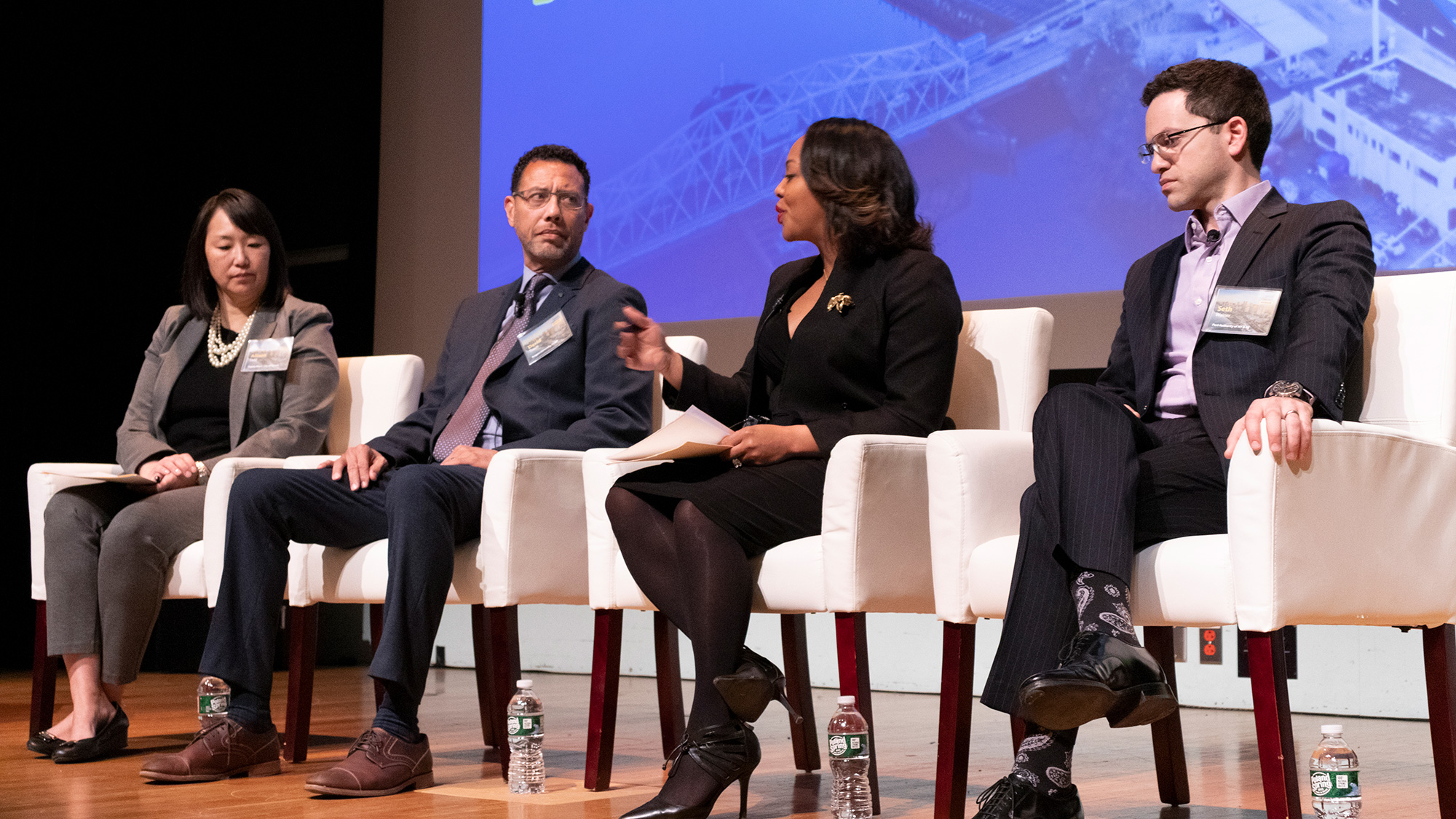
In order to make our communities more livable, economically vital, and truly functional, we must anticipate changes in mobility and focus infrastructure investments. Transportation infrastructure has played a huge role in the history of Newark. Newark is well prepared to be a truly connected city because of its past investments in one of the best high-speed fiber optic networks in the nation — three times faster than outside of Manhattan’s Google building, according to NJIT’s Daris Sollohub. Seth Wainer, senior strategic planner, Port Authority of New York & New Jersey, said that infrastructure investments can be designed into buildings to bring residents the cheapest possible Internet speed, creating new pathways to equity. With strategic infrastructure improvements, Newark could be at the forefront of new transportation trends in the next 100 years, Wainer said.
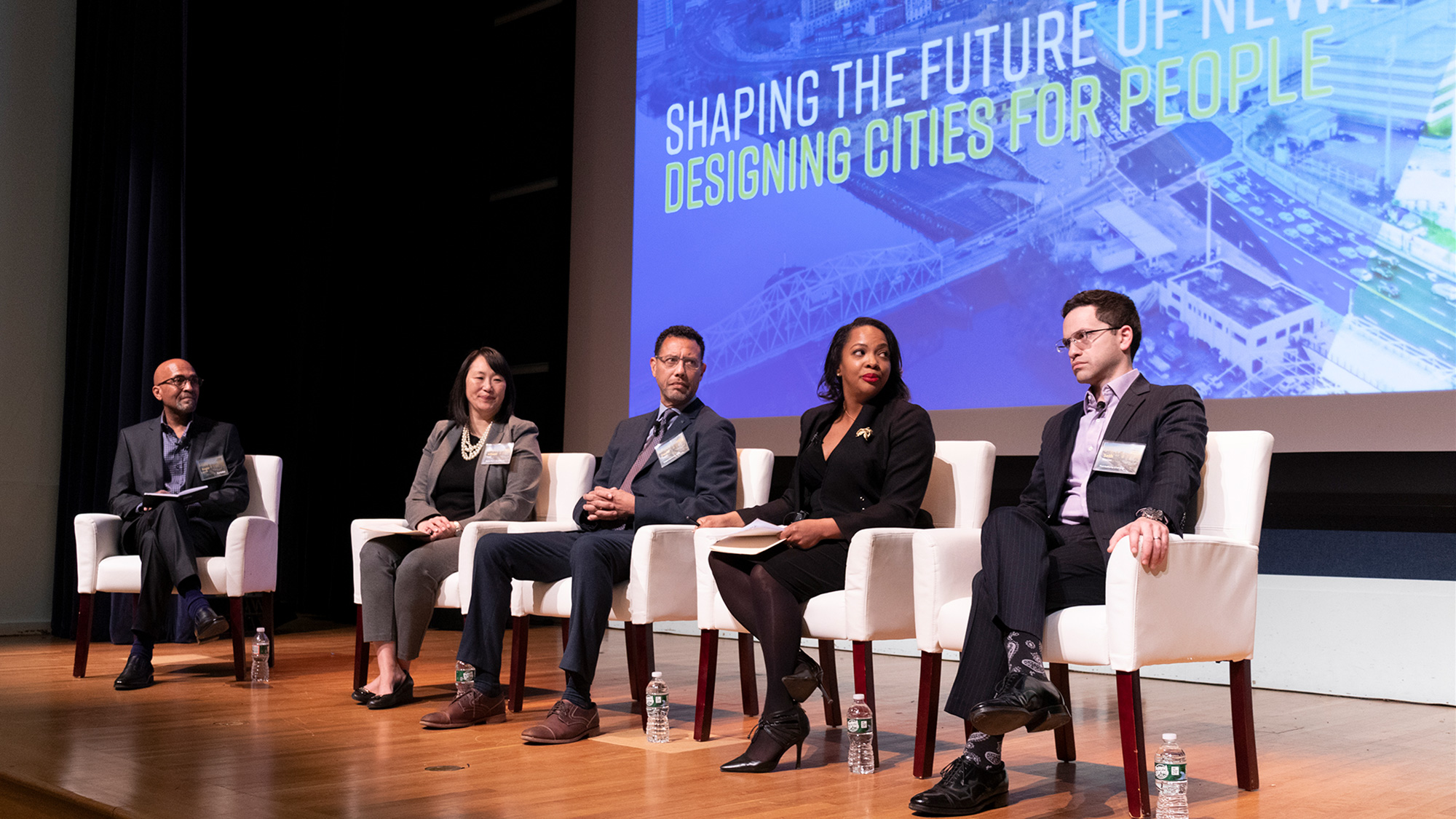
The panelists discussed how people-centered design and placemaking are essential for successful economic development. Tai Cooper, VP for Policy and Communications, New Jersey Economic Development Authority, underscored the importance of involving the community in the development process. Allison Ladd, deputy mayor and director of Economic and Housing Development, City of Newark, said it is vital to forge partnerships, listen to the community, and be intentional about policy and investments so that the City can ensure that Newark moves forward the way the community envisions it to be.
By engaging a broad spectrum of community voices, we can help shape a vision for the future of Newark around people-centered design. We hope to build partnerships with various stakeholders in the City to become an active participant in shaping the future of Newark.
